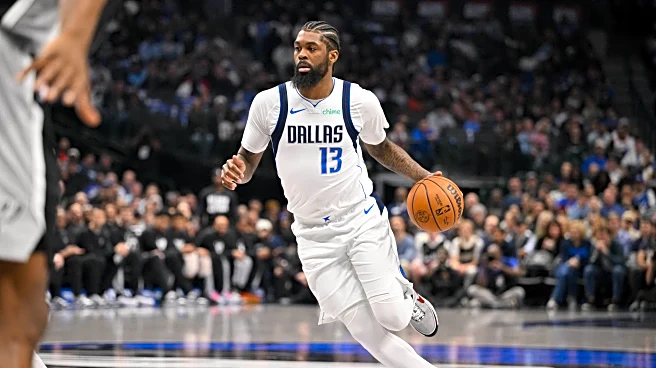What's Happening?
Indie music leaders have launched the '100 Voices' campaign to oppose the proposed acquisition deal between Universal Music Group (UMG) and Downtown Music Holdings. The campaign argues that the deal poses a serious threat to the diversity of voices, styles, and cultures in the music industry. The leaders believe that the acquisition would consolidate power within the industry, potentially limiting the range of music available to the public. This move comes as part of a broader effort to maintain a diverse and vibrant music scene, which they fear could be compromised by such large-scale corporate mergers.
Why It's Important?
The opposition to the UMG-Downtown deal highlights concerns about the increasing consolidation in the music industry, which could have significant implications for artists and consumers alike. If the acquisition proceeds, it may lead to fewer opportunities for indie artists to reach audiences, as larger companies often prioritize mainstream acts. This could stifle innovation and reduce the variety of music available, impacting cultural diversity and the industry's overall health. The campaign underscores the importance of maintaining a competitive environment where diverse voices can thrive, which is crucial for the industry's long-term sustainability.
What's Next?
The '100 Voices' campaign is expected to continue its advocacy against the UMG-Downtown deal, potentially influencing public opinion and regulatory scrutiny. Stakeholders in the music industry, including artists, labels, and consumer groups, may join the campaign to amplify its message. Regulatory bodies could also take a closer look at the deal to assess its impact on competition and diversity within the industry. The outcome of this campaign could set a precedent for how future mergers and acquisitions are approached in the music sector.
Beyond the Headlines
The campaign against the UMG-Downtown deal raises broader questions about the ethical implications of corporate consolidation in creative industries. It highlights the need for policies that protect cultural diversity and ensure fair competition. The debate may also spark discussions about the role of independent labels and artists in shaping the future of music, emphasizing the importance of supporting grassroots movements and alternative platforms.











